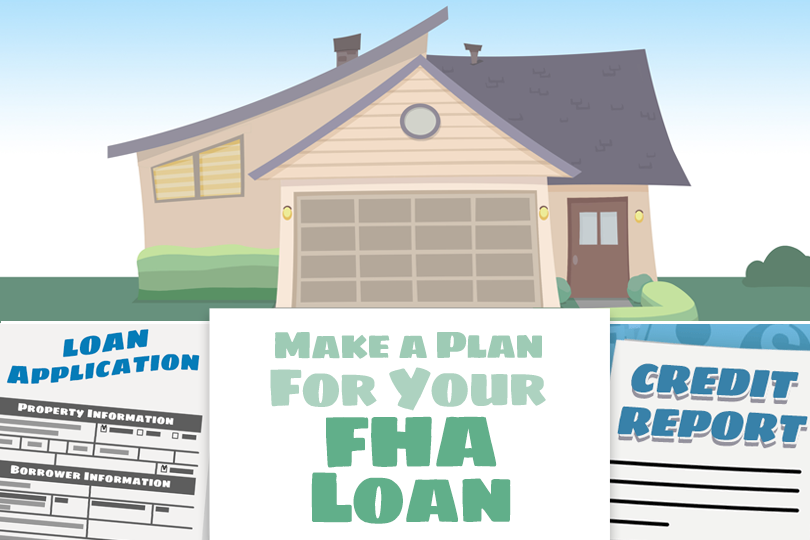FHA Credit Requirements and FICO Scores
August 27, 2023
While the FHA has set the minimum credit score at 500, most lenders that offer FHA loans typically require a minimum FICO score of 580 or higher to qualify for the 3.5% down payment option. Borrowers with FICO scores below 580 may still be eligible for an FHA loan, but may need to come up with a 10% down payment to get the loan.
Lenders will also review your credit history as an indicator of your past financial responsibility. A history of late payments, collections, or delinquencies can have a negative affect on your ability to qualify for an FHA loan. Generally, they'll probably be looking at the last two years of your credit history.
They'll also pull your credit report from the three major credit bureaus (Equifax, Experian, and TransUnion) to evaluate your credit history. It's important to review your credit report for accuracy and dispute any errors before applying for an FHA loan.
FHA guidelines typically require borrowers to have a maximum debt-to-income ratio of 43%. This means that your total monthly debts, including your mortgage payment, should not exceed 43% of your gross monthly income.
Your mortgage provider may also consider your employment history, income stability, and overall financial stability when evaluating your creditworthiness. Try not to make big changes right before you apply for a home loan.
If you've had a bankruptcy or foreclosure in your financial history, there are waiting periods before you can qualify for an FHA loan. The waiting period varies based on the circumstances and the type of loan.
If you have a lower credit score or do not meet the FHA credit requirements on your own, you may be able to apply with a co-borrower who has a stronger credit profile.
Since FHA loan requirements can change over time and lenders may tighten their own requirements during tough economic times, it's crucial to consult with an FHA-approved lender or visit the official FHA website for the most current information.
------------------------------
RELATED VIDEOS:
Keep Your Eyes on Your Loan Balance
Learn About FHA Loan Prepayments
Taking Out a Home Loan Makes You a Borrower

FHA Loan Articles
December 17, 2024The Federal Housing Administration provides mortgage insurance on loans made by FHA-approved lenders, making homeownership more attainable for those who might not qualify for conventional loans.
While financial factors like credit score and debt-to-income ratio are key to loan approval, other non-financial aspects can also cause a denial.
December 11, 2024FHA loans, insured by the Federal Housing Administration, are a popular choice for many homebuyers, especially those who need a lower downpayment or more forgiving credit qualifying requirements. FHA loans are primarily intended for primary residences—homes that borrowers will occupy as their main dwelling.
December 10, 2024The FHA announced increased loan limits for 2025, providing those seeking FHA-insured mortgages after January 1st with increased purchasing power. In this article, we explore the key aspects of these limits and their implications for your homeownership goals.
When you are approved for an FHA-insured loan, the FHA guarantees a portion of the loan to the lender, lowering lender risk...
December 9, 2024The Federal Housing Administration (FHA) helps people buy homes, especially those buying for the first time or who might not have perfect credit. In 2025, there is good news for FHA borrowers. FHA home loan limits are going up.
In most places, the FHA loan limit for a single-family home in 2025 is $524,225. This is more than it was in 2024. However, in expensive areas, where houses cost more, the limit can be as high as $1,209,750.
December 5, 2024The Federal Housing Administration (FHA) has some ground rules regarding cash-out refinances. These rules are designed to protect both you and the lender, ensuring you have enough ownership of your home and reducing the risk of foreclosure. How long must you own your home before you can apply for FHA cash-out refinancing?







